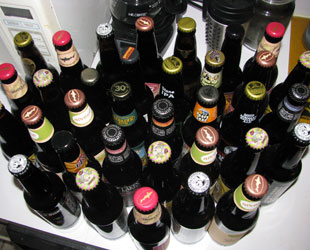 By Erik Carter
By Erik Carter
Cordell & Cordell Divorce Attorney
Many fathers will accuse mothers of excessive use of alcohol in the mistaken belief that a mother must prove that she doesn’t drink too much.
In reality, every accusation must be supported by credible evidence.
The person making the accusation has the burden of proof of showing that there is some credible evidence (the standard varies from state to state, so check with your local men’s divorce attorney concerning this) that the accusation has some merit. If you can carry your burden of proof, then she must respond to the accusation.
The reality is that you may have very much evidence beyond your own observations. Statistics show that women are less often arrested for drunk driving, public intoxication or battery (involving alcohol) than are men.
Statistically, women are less often disciplined at work for alcohol-related incidents. This should not discourage you. But you need to be aware of it.
Also, the court cannot hook her up to a lie detector while she is testifying to see if she is lying. The court can hear from you and your witnesses as to how much she drinks, how often she drinks, and how she behaves when she drinks.
Too often, fathers in child custody cases, which also include parenting time disputes, don’t want to “bring up dirty laundry” and will back off any discussion of her drinking.
Any problems your soon-to-be-ex-wife has with alcohol need to be raised for two reasons.
The first is the effect on the children. The judge must be aware of anything that could potentially harm the children. A parent who drinks too much could harm the children, either directly or through neglect. The primary concern of the judge is the protection of the children.
The second reason is the effect on society. No one wants a drunk driving on the roads. She may be a fabulous mother, but she could also be a potential vehicular homicide accident. If you think she has a problem with alcohol, use the court to get her the help she needs.
Make sure you discuss her use of alcohol with your divorce lawyer, especially what she will say about her use of alcohol. Do not minimize any incident where you had concerns about her drinking.
Make sure your lawyer knows any incident of hers where the police were involved, even if she was not arrested, and where alcohol was involved, even if it was not an alcohol-related arrest.
For example, if she was pulled over for DUI but she pled guilty to reckless driving, discuss it with your lawyer. Or maybe she was in an accident after going out with her friends, but she was not charged with DUI. Let your attorney know, as there may be evidence that she had been drinking, even if she was statutorily not drunk.
People with alcohol problems almost always minimize their problem and surround themselves with people who support and excuse their drinking.
Attack the credibility of her witnesses. If her best friend is testifying to an incident, make sure you point out how long they have been friends. You might even testify to any “bad blood” between you and the friend because she or he may be testifying this way to get back at you.
The best course of action is to simply not drink around your children or your ex. Judges will often question why a person – mother or father – feels the need to have alcohol when they have their kids, and there is not an answer that a judge will find acceptable.
Too many mothers think that they get a pass on drinking. It simply is not true in custody litigation.
Rarely will she admit that she has a problem. And even more rarely will the words, “Judge, let me explain…” carry the day.
But it is your responsibility to your children to raise this issue as early as possible.
Related Articles:
 To arrange an initial consultation to discuss divorce rights for men with a Cordell & Cordell attorney, including Indiana Divorce Lawyer Erik Carter, contact Cordell & Cordell.
To arrange an initial consultation to discuss divorce rights for men with a Cordell & Cordell attorney, including Indiana Divorce Lawyer Erik Carter, contact Cordell & Cordell.


